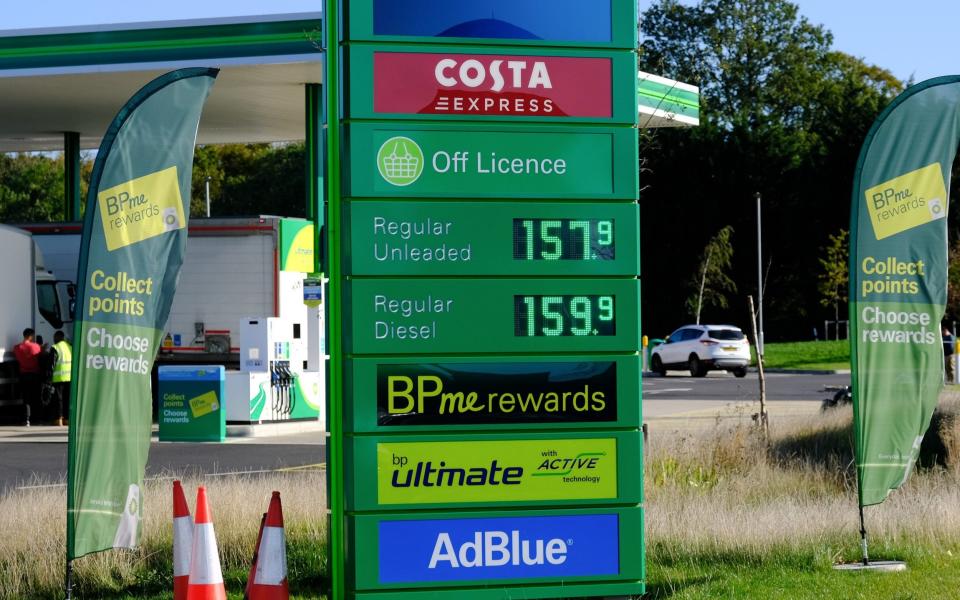Petrol heads for 150p a litre after hitting record high

Petrol could keep rising to 150p a litre after hitting a record high on Monday, piling more pressure on motorists.
A litre of unleaded now costs an average of 142.94p, surpassing the previous record set almost a decade ago, according to the RAC which called it “truly a dark day for drivers”.
The increase means filling a 55-litre tank on the average family car will cost £78.61, or £15 more than a year ago.
The RAC attributed the rise to crude oil more than doubling over the past 12 months to $85 a barrel.
Some analysts believe oil will hit $90 by the end of the year. If it rose even further to $100, the RAC said drivers were likely to be forced to pay 150p a litre of petrol.
Simon Williams, the motoring body’s fuel spokesman, said soaring fuel prices would hurt many household budgets and have knock-on implications for the wider economy.
“The big question now is: where will it stop and what price will petrol hit? If oil gets to $100 a barrel, we could very easily see the average price climb to 150p a litre.”
The last time petrol was so expensive crude reached $112 a barrel. The stronger pound in 2012 helped protect drivers from even high prices.
If oil continues to climb, sterling’s weakness means motorists will face even higher costs.
To help meet green targets, petrol now includes more bio content such as ethanol that is more expensive than crude and further raises costs.
Adding to the pressure, retailer margins back in 2012 were about 3.5p per litre, compared with 8p now.
The RAC called on the Government to ease taxes on petrol - which represents 81.6p of the price charged at the pump - to give drivers some relief.
Mr Williams said: “Drivers tell us they are just as reliant on their cars, and many simply don’t have a choice but to drive. Those on lower incomes who have to drive to work will seriously struggle to find the extra money for the petrol they so badly need.
“We urge the Government to help ease the burden at the pumps by temporarily reducing VAT and for the biggest retailers to bring the amount they make on every litre of petrol back down to the level it was prior to the pandemic.”
The petrol shock came alongside a prediction that household energy bills could soar by 150pc if gas prices do not fall from their current highs, having risen as much as 500pc in recent months.
Mark Bathgate, a fund management consultant at Tweeddale Advisors, warned: “The wholesale price of gas is very visible and makes up about 35pc to 40pc of household bills. It’s simply arithmetic that if these levels are sustained, the pass through will mean household costs going up by 150pc.”
The said the UK faced an inflationary shock that meant the Bank of England’s expected 4pc inflation rate - double the target - was “a dream”.
“It’s a perfect storm for inflation for the UK. Energy costs are going up, consumer durables are going up because of supply chain problems, food is getting more expensive and we have labour shortages,” Mr Bathgate said.
Power bills will rise by 30pc because of soaring gas prices, energy consultancy Cornwall Insight forecast earlier this month.
It predicted that the energy price cap would rise to £1,660 a year from next spring for the average household on a dual fuel contract.
When the energy price cap is next reviewed by the regulator Ofgem in the spring, others have forecast a 40pc.
